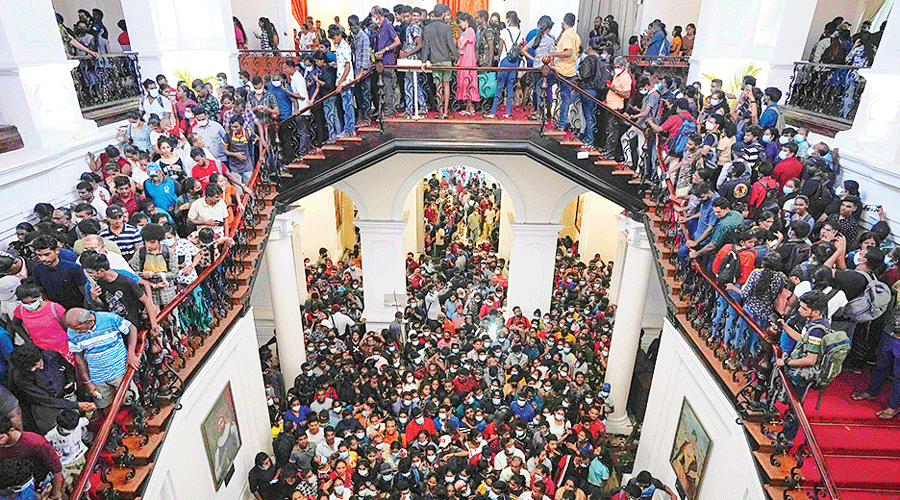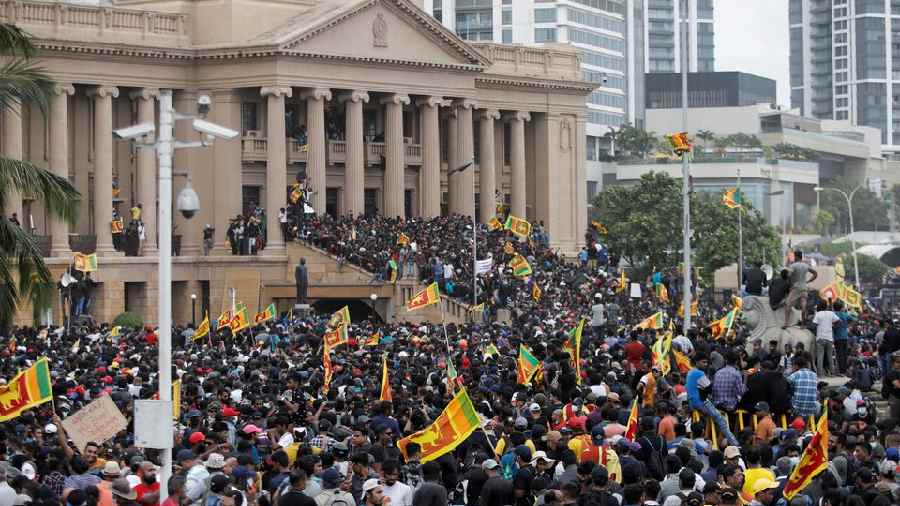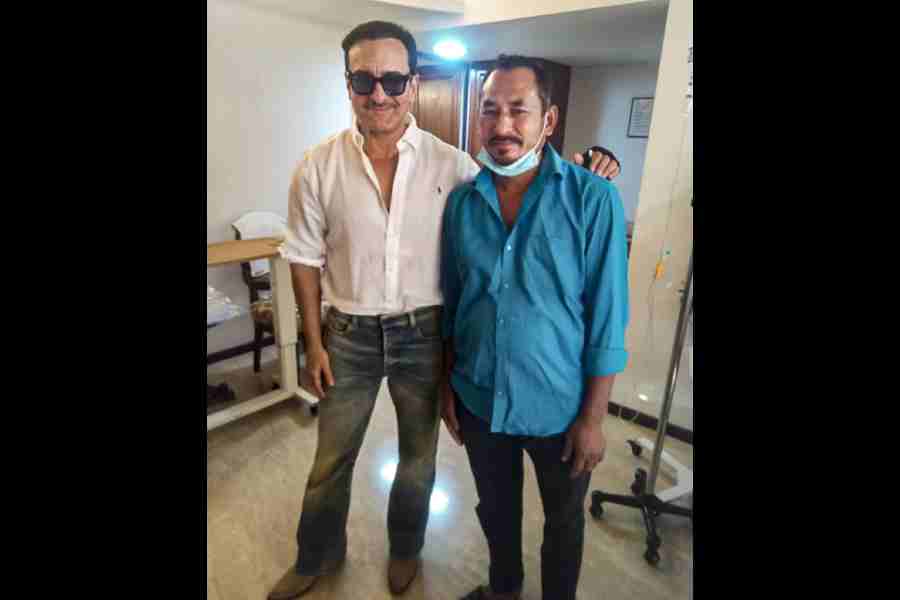Sri Lanka’s parliament will on July 20 elect a new President, its Speaker said on Monday, to replace Gotabaya Rajapaksa who has not been seen in public since Saturday when tens of thousands of protesters stormed his palatial official residence and said they would stay put until he quit.
Rajapaksa is still in the country, Speaker Mahinda Yapa Abeywardena’s office said, trying to put the lid on speculation that he had fled.
“This was (speculated) after a mistake made by Speaker of Parliament Mahinda Yapa Abeywardena who had said he had left the country but would be back by Wednesday to offer his resignation. Abeywardena later corrected the mistake,” his office said.
Abeywardena, who is tipped to be the acting President once Rajapaksa resigns, had told BBC World Service that the President is staying “somewhere outside… in a nearby country”. “He will come back on Wednesday, he will be there. He told me that he will be stepping down on July 13,” he added.
Hours later, Abeywardena, 76, retracted his statement.
Rajapaksa’s brothers and nephew earlier quit as ministers as Sri Lanka began running out of fuel, food and other essentials in the worst crisis since independence from Britain in 1948.
The parliament will reconvene on Friday and will vote to elect a new President five days later, Abeywardena said in a statement. “During the party leaders’ meeting held today it was agreed that this was essential to ensure a new all-party government is in place in accordance with the Constitution,” the statement added.
“The ruling party has said the Prime Minister and the cabinet are ready to resign to appoint an all-party government.”
Prime Minister Ranil Wickremesinghe, whose private home was set alight by protesters, has said he will step down.
The entire Sri Lankan cabinet will resign and hand over their responsibilities to a new all-party interim government as soon as it is formed, Wickremesinghe’s office said on Monday.
“All the ministers who participated in the discussion were of the opinion that as soon as there is an agreement to form an all-party government, they are ready to hand over their responsibilities to that government,” the PMO said.
Wickremesinghe’s media team said he held the meeting with cabinet ministers at the Prime Minister’s office on Monday.
“President Gotabaya Rajapaksa has officially informed Prime Minister Ranil Wickremesinghe that he will be resigning as previously announced,” the statement added.
Opposition leader Sajith Premadasa, whose Samagi Jana Balawegaya party holds 54 seats in the 225-member Parliament, said it was ready to step into the government.
“We as the Opposition are ready to provide leadership to stabilise the country and rebuild the economy,” he said. “We will appoint a new President, Prime Minister and form a government.”
Colombo was calm on Monday as hundreds of people strolled into the President’s secretariat and residence and toured the colonial-era buildings. Police made no attempt to intervene.
“We are not going anywhere till this President leaves and we have a government that is acceptable to the people,” said Jude Hansana, 31, who has been at a protest site outside the residence since early April.
Another protester, Dushantha Gunasinghe, said he had travelled 130km to Colombo, walking part of the way because of a fuel crunch.
“I’m so exhausted I can barely speak,” said the 28-year-old as he sat outside the President’s office. “I came alone all this way because I believe we need to see this through. This government needs to go home and we need better leaders.”
Sri Lankans have mainly blamed Rajapaksa for the collapse of the tourism-dependent economy, which was hammered badly by the Covid-19 pandemic and a ban on chemical fertilisers that damaged farm output. The ban was later reversed.
Government finances were crippled by mounting debt and lavish tax breaks given by the Rajapaksa regime. Foreign exchange reserves were quickly depleted as oil prices rose.











